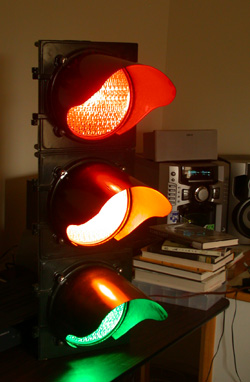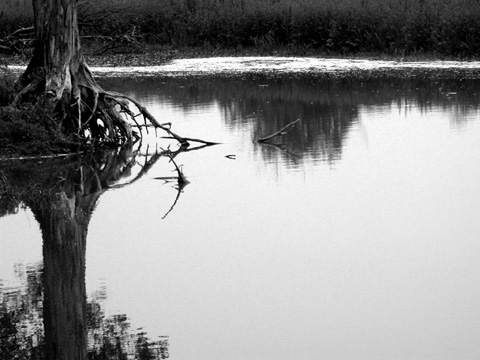While applying for a job, I was asked for a list of references and for the life of me, I couldn’t remember the first name of the manager of one of my contracts. Lee? Les? Lenny? Lou? I knew it started with an ‘L’, and was a common name, but that’s it. I drew a complete blank. Pretty embarrassing, really.
Memory can play such games on us at times. I can’t remember the name of someone I worked with in the last few years, but can still remember my childhood on the farm, even though we moved to town before I was seven. The memories crowd in every time a certain word is said, or I smell a specific scent, or come upon a scene that matches a certain pattern in my brain.
Just the sight of a cherry tree in bloom and I’m reminded of the old cherry tree that grew alongside the road to our house. We could only reach the fruit by putting a ladder over the poison ivy bushes underneath; bushes left in a hope of discouraging easy access to greedy little children who didn’t have the sense to know when to stop eating. However, I have this vivid memory of being in the tree, alone, eating fistfuls of fruit by the light of a late golden afternoon, so at some point I must have either figured out how to drag the ladder over to the tree, found another approach, or (more likely), took a running leap through the bushes in the youthful hope that by moving very fast, I would avoid the plants effects.
Picturing that tree in my mind, with the dirt road to the left, I look to the right to the green/gold weed and dirt field where we kept our cows. Gentle creatures that provided milk for our table and family in town. I remember a milk pail and my Mom spooning cream off to be used for butter or cooking, Dad working on a wooden fence. My mind wonders dreamily from one placid cow to the next, until it runs, hard, into the bony, broad bulk of the bull. Maxine’s George. Now, why can I remember the name of that bull, but not my manager’s?
Some bulls have the sweetest of dispositions and a child can walk around them without fear. Others don’t care for human company, but will ignore you more than anything else. Then there’s the born hateful kind, of which George was a prime example.
George would charge any human who invaded his domain, and his intent was pain, copious amounts of pain. Tromping, goring, crushing, stomping pain with great huffs and puffs of bull virility and dominion. That sonabitch also developed a fondness for my red jacket, and one of his great pleasures in life was to take a bite out of that jacket every chance he got. A piece of my arm was a bonus. He was just a plain old mean sucker, and don’t let anyone tell you that bulls aren’t smart, because that bastard was devious. George would stand a distance away from the fence, butt turned towards you, eyes half closed as he contentedly munched hay. As soon as I or my brother would climb the fence to pet the calves, flash! That black wrath of God would come tearing across at us, death and mayhem in its cold brown eyes.
When we finally butchered George, we found his meat to be tough and stringy, which only proved what we knew all along: that bull was onery to the bone.
Memories.
Mom said that when we were young, none of us was all that good with animals. She was mean to them, and I do remember this for a fact. However, I was confused about her inclusion of Mike and me in this assessment. It’s true, Mike didn’t like the cats or the dogs, but he liked twin calves we had, once. He would watch them play about, and scratch their knobby heads when they came close to the fence. He named them, but I can’t quite remember the names. I can actually visualize Mike in the kitchen talking about the calves, saying their names, but the sound doesn’t reach me. However, I do clearly remember Mike’s face when we came home and found that the calves had been taken away to be butchered. Stoic, not even the hint of an expression as he walked away, not returning until later that day.
I, myself, was partial to the cats, particularly a black and white cat named Sylvester and a dirty white cat I called Snoball. Farm cats, but I got on well with them, unlike the cats that lived at my grandparent’s farm down the road. Those cats were wild, living on the mice and rats that farms attract. You try and pet one of them, you’ll get clawed but good, scratches that will get septic.
Mom was okay with Sylvester, and she was an indoor cat. However, Mom and Snoball hated each other. There wasn’t a week that went by that Mom didn’t load Snoball into the car for a long ride into the country, from which Mom would return alone. However, Snoball would always show up in a couple of days, or a week. That cat was loyal, though I don’t know why.
Eventually, though, he got the point and didn’t return home. I did run into him once, scrabbling for a living down by the river. He growled at me at first until I talked softly to him, held out my small hand. He sniffed it, and then began to rub against it, emitting rusty, unused purrs. We just sat there for a while, enjoying the contact. Never did see him again after that day.
We had dogs, too. My Dad’s German Shepard scared me, but we had an old, stupid, lovable hound that I thought needed looking after, especially when it tussled with the porcupine. The sight of that dog with quills in its snout is a very vivid memory. It took Mom and the neighbors and a pair of pliers and a lot of work to get that dog fixed up. I can’t remember the hounds name, but he was one miserable creature by the time they were finished.
And then there was EB.
My brother and I met EB when we returned from a trip to my Aunt’s. My Dad said to go out into the garage, he had a surprise for us. When we entered it, a wiggly mess and loud voice greeted us, making both of us scream and run for the house. After this inauspicious first meeting, though, Mike learned to tolerate EB, while she and I became friends.
EB and I would run about the yard together, barking at each other, sometimes playing ball (me throwing, her trying to chew into pieces). Since all the dogs stayed out at night (my Mom wouldn’t tolerate a dog in the house) there were no quiet evenings curled up together, but there were happy reunions in the morning.
EB was a good-natured dog, though a bit barky at times; still, there was no harm in her. If there was a problem with EB it was that she would take off any chance she got, visiting all the neighbors for miles around. They would call my Mom to tell her EB was visiting again, an event I could deduce because my Mom’s lips would get white from controlled anger as she grabbed the car keys to drag EB home. We’d tie her up, but she’d always get lose.
Back home, a dog running lose was a pretty serious matter. They could easily get killed by cars, or by the wild animals that lived in the area. A big raccoon can kill a dog and so can a bear or cougar. Loose dogs could also harass other farmer’s livestock, chasing and killing chickens and domestic rabbits, or barking at cows and putting them off their milk. The biggest fear, though, with a loose dog is that they could get bitten by a rabid skunk or other creature, eventually putting the farmer’s family into great risk. Rural dwellers in that time had a very real and very valid fear of rabies. A loose dog just wasn’t welcome anywhere.
When EB was about two years old, we were at yet another relative for a visit. When we came home, Mom greeted us with the news that EB had been hit and killed by a car. I can’t remember if I cried, I didn’t cry much in those days. I do know that I never did get close to any of the farm dogs after that.
I reminded Mom about EB when she said that Mike and I weren’t good with the dogs. Oh, no, she said. Neither Mike nor I cared for the dogs. No one cared for the dogs but my Dad and he was never home. Since I recognized another case of my Mother’s selective memory, I didn’t push it. She continued talking about how badly we all treated the dogs. Rambled on an on about it, and among the reminisces was the day that day EB died.
The dog, Mom said, had gotten lose again, and the neighbors called to have her pick it up. They were getting pretty annoyed at having to call, which only made my mother angrier. When she picked EB up, instead of bringing her home she took her into a field far away from other homes. There, she led EB out of the car and tied her up to a tree. While EB frisked about, wondering at this new game, Mom got one of my Dad’s rifles out of the car, took aim, and shot EB through the head.


 You spend the first half of your life accumulating baggage and the second half of your life getting rid of it.
You spend the first half of your life accumulating baggage and the second half of your life getting rid of it.




